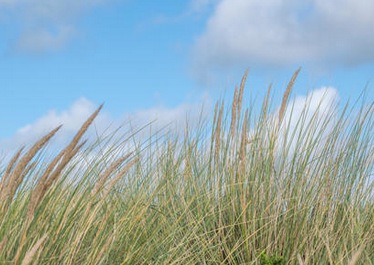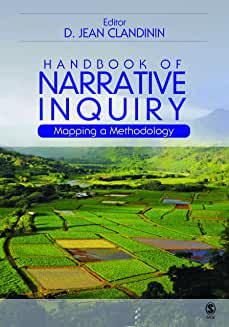
|
|
Starter kit 1I am about to write about what I don't like to write: me. Well, yes, I've written quite a bit about me in some of my stories, but all that was about a later me. This is about an early me. Not the same me. Not altogether, anyway. 3 Autobiography is hopelessly inventive, Michael Gazzaniga warned us in his "The Mind's Past" (1992). Got to keep that in mind. And just so we understand each other, I deliberately will leave out some things to avoid hurting others. Nor unnecessarily myself, I might add. I'll try not to be hopelessly inventive, but I probably will fail by some measure. 4 Me is a complex affair; my world is a complex affair. "Me and my World" is a very, very complex affair. That causes a lot of problems. I am rambling again. Let's get on with it. 5 Where should I begin? How? Fumbling about, I came across "Handbook of Narrative Inquiry." That looked relevant. But a jigaw puzzle and a few days later, I began to wonder what is meant by "narrative inquiry." Wikipedia helped me along: 7 "Narrative inquiry or narrative analysis is a category of qualitative research." Qualitative research stands in contrast to data-based research. "Narrative inquiry uses field texts, such as stories, autobiography, journals, field notes, letters, conversations, interviews, family stories, photos (and other artifacts), and life experience, as the units of analysis to research and understand the way people create meaning in their lives as narratives." 8 How about "meaning of life"? Trying to live up to some personal ideal? That'll do it for me, whatever my personal ideal. As for that handbook, Cdn$147.11; way out of my league. And too much to read in the time I may have left. 9 I do have, as I imagine you do, many vivid memories; like photographic snapshots with some sense of motion and from which to spin some narrative truth about myself, and others; narratives from which to draw conclusions. Narratives such as putting most of the blame for painful happenings on my parents. But on reflection, what did they know about raising children? What does anybody know? What effect did circumstances have on their lives? And so on, and so forth. And what did I myself contribute to the porridge of my legacy? Stuck in my mind: "You need a licence to raise pigs." 10 I am struck by how many snapshots my brain holds without me having been aware of them for most of my life. The more I dwell on writing this story, the more images pop up. For now I'll limit myself to my first twelve years or so and for my objective doing this piece. 11  Waar de blanke top der duinen schittert in de zonnegloed en de Noordzee vriend'lijk bruisend Neerland's smalle kust begroet ... (Where the dunes' white tops sparkle under the glowing sun and the North Sea, kindly whooshing, meets Netherland's narrow shore ...) (Source) 12 An image of a man in white pulling me out of water—I already wrote about that, six months ago. An image of me riding a pedalcar besides my father, him walking. Snapshots of a vacation on a farm in Zeeland; the train's wooden bench; the ship (very vaguely) to Zijpe, "uncle" Piet thundering deep into his cap before eating: "... the MIGHT and the POWER ...;" my "aunt" cutting thin slices from a huge loaf of bread with the knife edge toward her big bosom before smearing mine with "stroopvet" (a mixture of lard and beet syrop); the smell of pig excrement in the filthy sty next to the cow shed; trying to squeeze a cow's teat for milk. Crawling across the floor to reap peppernuts strewn by Black Pete, Saint Nicolas's helper; a toy train on a circular track; strands of vermacelli in an opa's formidable moustache. Another vacation, in a cottage in the dunes near Katwijk on the Sea; sharp marram grass cutting a hand or finger. 13 I have been told that I was hit on the head by an uncle's heavy soccer boot when I was very young, and that soon thereafter I was found to be cross-eyed and made to wear eye glasses. And that I threw my favorite toy, an old alarm clock with a bell, in the crib of my newborn brother. Felt a bit guilty when told about that. 14 Things took a bad turn when, probably around six or seven years old, my mother told me that in the future I must take care of my parents. 15 I had many uncles and aunts. Large families were common in the olden days. Having many children meant life insurance for parents. I vaguely recall that there were family squabbles about who paid how much. 16 I already was a nervous child. Other kids made fun of me because of my glasses, and freckles, and red hair. Even adults made some remarks about my freckles and hair, good natured, but stinging just the same. It adds up, and then to be told that I had to take care of my parents. Scary. How would I ever take care of myself? 17 Sometimes my parents would laugh about something I did—a fart, say, trailing off on a musical note. Other times I got scolded for the same such thing. I got spanked a couple of times with a small wooden plank tailors used for pressing a collar or something. Whatever brought that on, I haven't the foggiest, but my father had spells of furiosity, a few times throwing his dinner plate to the wall, food slithering down the wallpaper. Maybe that came a few years later, during he war; I lost track. Many a time my mother warned me that if I didn't as told she would tell my father. I increasingly clung to her for not telling him about my tresspasses. I became uncertain about how to behave and began roaming the streets to get away from home. Nervousness and shaky hands became troubling companions until late in life. 18 I put a lot of blame on my father even though, had I reflected on it, he was at heart a well-meaning man. Or tried to be. He used to have friends, helped people out financially; for a period there were weekly card games at my home with a fair amount of drinking—I still remember the smell of alcoholic concoctions in the mornings after when I was first to rise. My parents became members of a motorcycle club. He also joined a soaring club where they built their own gliders, and proudly sported a "Brevet C" in a collar's buttonhole. He would take me up one day. 19 That day never came. The Germans intervened by overrunning my country in May of 1940. My father rapidly lost his mental bearings. Victim, I imagine, of his upbringing and unrelenting circumstance; of having to provide for a family while soon becoming unable to obtain sufficient cloth for his tailoring business. Plagued ever since, I came to believe in my nineties, by a low esteem for as long as I have known him. 20 Have I been hopelessly inventive? Why have I been telling all this anyway? That question I intend to broach in a follow-up. And, yes, as they say, there are two sides to many a story. 21 As for the third side, only God knows. 22
|
--
| top of page |
|
